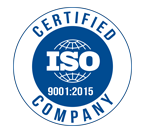Cayman Chemical, 25 µg
-
Microcystin-LA
Cayman ChemicalDiffers from the major microcystin variant LR with the substitution of alanine in place of the arginine; inhibits both PP1C and PP2A with an IC50 value of 0.3 nM.
-
tetranor-PGDM
Cayman ChemicalA major metabolite of PGD2 found in human and mouse urine at levels of approximately 1.5 and 8.1 ng/mg creatinine, respectively.
-
9(S)-HETE
Cayman ChemicalA purified enantiomer of (±)9-HETE resulting from non-enzymatic oxidation of arachidonic acid.
-
13,14-dihydro-15-keto-tetranor Prostaglandin F1ß
Cayman ChemicalA major urinary metabolite of PGE2 that is excreted in guinea pig urine at a concentration range of 1.34-2.74.
-
PPARd (human recombinant)
Cayman ChemicalSource: recombinant protein expressed in Sf21 cells Mr: 54 kDa PPARs are members of the nuclear receptor family of ligand activated transcription factors that heterodimerize with retinoic acid like receptors, regulating gene expression and differentiation. PPARδ is a mediator of diverse…
-
15(S)-HETE Ethanolamide
Cayman ChemicalLess potent than AEA (Item No. 90050) at the CB1 receptor (Ki = 600 versus 90 nM); inhibits FAAH.
-
Maresin 2
Cayman ChemicalA 13R,14S-dihydroxy DHA formed by recombinant human macrophage 12-LO and sEH co-incubated with DHA; reduces neutrophil infiltration in a mouse model of peritonitis and enhances human macrophage phagocytosis of zymosan A.
-
(±)14(15)-EpEDE
Cayman ChemicalAn EpEDE acid formed from DGLA, either by a strong oxidizing agent or by cytochrome P450 epoxygenases; biological properties are poorly understood.
-
-
TP53BP1 BRCT domains (human recombinant)
Cayman ChemicalSource: Recombinant human N-terminal GST-tagged protein expressed in E. coli amino acids 1,717-1,972 (N- and C-terminal truncation)
-
15-OxoETE
Cayman Chemical15-OxoETE is produced by oxidation of the 15-hydroxyl of 15-HETE. Whether this is a major pathway of 15-HETE metabolism is yet to be clearly established.
-
Prostaglandin F2a-d4
Cayman ChemicalAn internal standard for the quantification of PGF2α by GC- or LC-MS.
-
(±)10(11)-EpDPA
Cayman ChemicalA DHA epoxygenase metabolite detected in rat brain and spinal cord, as well as human serum, that acts as a substrate for sEH (Km = 5.1 µM); demonstrates antihyperalgesic activity in inflammatory and neuropathic pain models and potently inhibits angiogenesis and tumor growth in in vitro assays.
-
(±)14(15)-EpEDE methyl ester
Cayman ChemicalAn analog of (±)14(15)-EpEDE with greater lipid solubility than the free base.
-
(±)11(12)-EpETE
Cayman ChemicalAn epoxygenase pathway product produced from EPA by CYP450 both in vitro and in vivo; its effects of remain to be determined.
-
2,3-dinor-11ß-Prostaglandin F2a
Cayman ChemicalKey urinary metabolite of PGD2; represents approximately 1% and 4% of the infused radiolabeled dose in monkeys and humans, respectively.
-
GDF11 (human recombinant)
Cayman ChemicalSource: Recombinant protein expressed in E. coli MW: 12.5 kDa
-
KT 5823
Cayman ChemicalA potent, selective inhibitor of PKG (in vitro IC50 = 234 nM); cell-permeable and often used in intact cells to assess the role of PKG in signaling.
-
(±)8-HETE
Cayman Chemical(±)8-HETE is one of the six monohydroxy fatty acids produced by the non-enzymatic oxidation of arachidonic acid.
-
5(S)-HETrE
Cayman Chemical5(S)-HETrE is produced by the action of 5-LO when mead acid is the substrate. There are no literature reports of the biological activity or further metabolic fate of 5(S)-HETrE.
-
8(S)-HETrE
Cayman Chemical8(S)-HETrE is a monohydroxy PUFA produced by rabbit neutrophil lipoxygenase when DGLA is used as a substrate. Although the biological activities of 8(S)-HETrE have not been well characterized, it is expected to behave similarly to 8(S)-HETE.
-
Leukotriene A3 methyl ester
Cayman ChemicalBiosynthesis of LTA3 occurs from 5,8,11-eicosatrienoic acid via the 5-LO pathway{689} and it is the putative intermediate in the biosynthesis of 3-series leukotrienes. LTA3 as a free acid is highly unstable. The methyl ester is stable and can be readily hydrolyzed to the free acid as needed.
-
(±)18-HETE
Cayman ChemicalThe racemic version of a CYP450 metabolite of arachidonic acid that dose-dependently stimulates vasodilation of the rabbit kidney.
-
17-trans Prostaglandin E3
Cayman Chemical17-trans PGE3 is an isomer of PGE3 which could theoretically result from the COX metabolism of dietary trans-fatty acids. There are no published reports on the biological activity of this compound.
-
(±)13(14)-EpDPA
Cayman ChemicalA DHA epoxygenase metabolite found in rat brain and spinal cord that acts as a preferred substrate for sEH (Km = 3.2 µM); demonstrates antihyperalgesic activity in inflammatory and neuropathic pain models and potently inhibits angiogenesis and tumor growth in in vitro assays.
-
Latrunculin A
Cayman ChemicalA bioactive macrolide derived from sponges that binds monomeric actin, preventing actin polymerization both in vitro (Kd = 0.2 μM) and in cells (0.5 μM).
-
15(R)-Lipoxin A4
Cayman ChemicalAn aspirin-triggered lipoxin that inhibits LTB4-induced chemotaxis, adherence, and transmigration of the neutrophils with twice the potency of LXA4 demonstrating activity in the nM range.
-
tetranor-PGAM
Cayman ChemicalA dehydration product of tetranor-PGEM that can be measured as a surrogate for tetranor-PGEM levels in urine.
-
19(R)-HETE
Cayman ChemicalA major CYP450 metabolite of arachidonic acid that is released from the kidney in response to angiotensin II; a potent vasodilator of renal preglomerular vessels; blocks 20-HETE-induced vasoconstriction of renal arterioles at 1 µM.
-
(±)5-HETE
Cayman Chemical(±)5-HETE is one of the six monohydroxy fatty acids produced by the non-enzymatic oxidation of arachidonic acid. It contains equal amounts of 5(S)-HETE and 5(R)-HETE. (±)5-HETE induces the aggregation of isolated neutrophils with an IC50 value of 200 nM.
-
20-hydroxy N-Arachidonoyl Taurine
Cayman ChemicalA potential cytochrome P450 metabolite of N-arachidonoyl taurine that may activate TRPV1 and TRPV4.
-
(±)11-HDHA
Cayman Chemical(±)11-HDHA is an autoxidation product of DHA in vitro. It is also produced from incubations of DHA in rat liver, brain, and intestinal microsomes. DHA is metabolized to 11(S)-HDHA by human platelets and canine retina. In addition to 11(S)-HDHA, 14(S)-HDHA is also produced by platelets.…



















